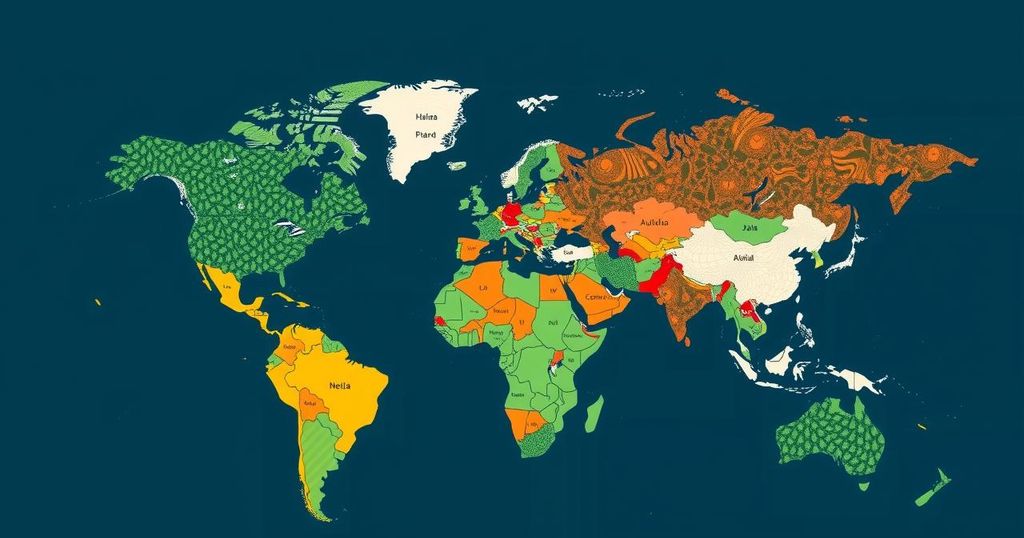Wealthy Nations Fail to Meet Climate Goals, ASCOR Study Shows

The ASCOR study illustrates that wealthy countries are failing to meet their climate goals, with insufficient emissions reduction efforts and legal accountability for climate impacts. The study, examining 70 nations, highlights urgent investor demands for government action amid rising global temperatures. Despite some countries progressing towards climate targets, the overall response remains inadequate, raising concerns over the financial implications of climate change.
A recent study by the Assessing Sovereign Climate-related Opportunities and Risks Project (ASCOR) reveals that affluent nations significantly fall short of their climate goals, failing to align with commitments necessary to limit global warming to 1.5 degrees Celsius. This assessment of 70 countries shows no substantial trend indicating that wealthy nations are effectively addressing climate change. As global temperatures are projected to reach alarming levels in 2024, the necessity for actionable government policies has escalated, prompting investors to demand greater accountability from national leaders.
The urgency to mitigate climate change is underscored by alarming forecasts from the World Meteorological Organization, which indicated a rise in temperatures that threatens international climate stability. Stakeholders, including Victoria Barron, Chief Sustainability Officer at GIB Asset Management, emphasize that “Investors need to see more credible action by governments.” Financial markets still seem to underestimate the risks associated with climate change, as researchers introduce the concept of the “climate-sovereign debt doom loop,” highlighting potential increased costs for nations linked to climate-induced challenges.
Moreover, it appears that wealthy nations have not made adequate progress in halting fossil fuel production nor phase out subsidies, with less than 20 percent committing to cease approvals for new fossil fuel projects. Alarmingly, over 80 percent of affluent nations are not contributing their fair share to international climate financing goals, with requirements escalating after the impending COP29 summit. In response to such disheartening trends, ASCOR has expanded its evaluation to encompass a broader range of countries, reflecting the urgent need for more widespread and transparent climate actions. However, it is noteworthy that nations like Costa Rica and Angola are on track to meet their climate targets, suggesting that progress is attainable.
Despite the challenges, 40 countries now possess legal frameworks to combat climate-related issues, and three-fourths have formulated strategies to handle physical risks stemming from climate change. As the international community faces litigation for failures to protect citizens from climate crises, an urgent reevaluation of commitments may be required to ensure a sustainable future.
The report by ASCOR highlights concerns from investors regarding the insufficient efforts by wealthy nations in combating climate change. The study specifically examines the alignment of national policies with the critical goal of limiting global warming to 1.5 degrees Celsius, crucial for safeguarding ecosystems and human populations. With global temperatures projected to rise further, the urgency for comprehensive climate action by affluent countries is imperative to avert catastrophic climate consequences. The legal implications for inaction further complicate the landscape, underscoring the immediate need for accountability and robust action.
In conclusion, the ASCOR study reveals a disconcerting reality of inadequate climate action from wealthy nations, exemplified by insufficient commitments to reduce emissions and the lack of transparent policies on fossil fuel production. As global temperatures rise, the imperative for effective government action intensifies, with significant implications for international financial stability and ecological sustainability. Although certain countries show promise in their climate commitments, a collective effort is urgently required to meet global climate goals and mitigate impending risks posed by climate change.
Original Source: www.outlookbusiness.com






